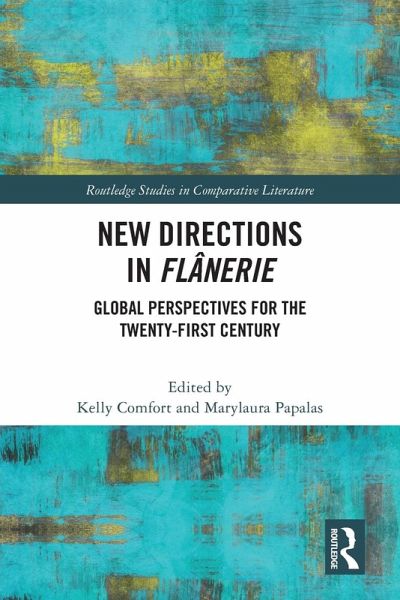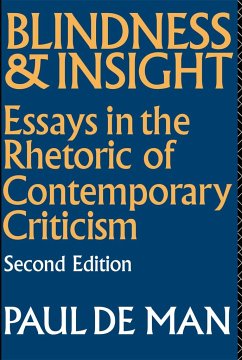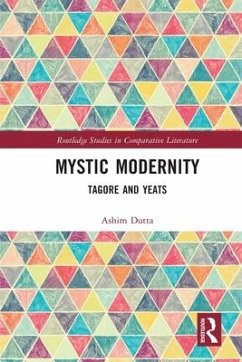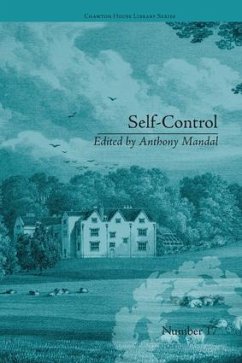
New Directions in Flânerie
Global Perspectives for the Twenty-First Century
Herausgegeben: Comfort, Kelly; Papalas, Marylaura
Versandkostenfrei!
Versandfertig in 6-10 Tagen
42,99 €
inkl. MwSt.

PAYBACK Punkte
21 °P sammeln!
This book distinguishes itself from previous scholarship by offering an inclusive and comprehensive treatment of urban walking from 1800 to the present. Divided into three sections-geography, genius, and gender-the introduction establishes the origins of the flâneur and flâneuse in early foundational texts and explores later works that reimagine flânerie in terms of these same three themes.The volume's contributors provide new and global perspectives on urban walking practices through their treatment of a variety of genres (literature, film, journalism, autobiography, epistolary corresponde...
This book distinguishes itself from previous scholarship by offering an inclusive and comprehensive treatment of urban walking from 1800 to the present. Divided into three sections-geography, genius, and gender-the introduction establishes the origins of the flâneur and flâneuse in early foundational texts and explores later works that reimagine flânerie in terms of these same three themes.
The volume's contributors provide new and global perspectives on urban walking practices through their treatment of a variety of genres (literature, film, journalism, autobiography, epistolary correspondence, photography, fashion, music, digital media) and regions (Europe, Asia, the Americas, Africa, the Middle East).
This volume theorizes well-known urban characters like the idler, lounger, dandy, badaud, promeneuse, shopper, collector, and detective and also proposes new iterations of the flâneur/flâneuse as fashion model, gaucho, cruiser, musician, vampire, postcolonial activist, video game avatar and gamer.
The volume's contributors provide new and global perspectives on urban walking practices through their treatment of a variety of genres (literature, film, journalism, autobiography, epistolary correspondence, photography, fashion, music, digital media) and regions (Europe, Asia, the Americas, Africa, the Middle East).
This volume theorizes well-known urban characters like the idler, lounger, dandy, badaud, promeneuse, shopper, collector, and detective and also proposes new iterations of the flâneur/flâneuse as fashion model, gaucho, cruiser, musician, vampire, postcolonial activist, video game avatar and gamer.














